Experts say that adding fish and seafood to your diet offers numerous health benefits.
Types of Seafood Beneficial for Health
More and more people are adding fish to their diets to provide heart-healthy omega-3 fatty acids. Many prefer eating fish like salmon and tuna due to their delicious flavors, but experts say that smaller fish and bivalve seafood like clams and scallops are also worth trying.
Professor of Nutrition and Health Christopher Golden at Harvard T.H. Chan School of Public Health states that incorporating smaller fish and bivalve seafood can increase the intake of micronutrients that people often lack, such as zinc, iron, vitamin B12, and omega-3 fatty acids.
Professor Golden shared with CNBC: “Small fish often contain a wealth of nutrients. Bivalve seafood, such as clams and oysters, are excellent sources of zinc and calcium.”
Accordingly, Professor Golden recommends reducing red meat consumption and replacing it with foods such as: herring; mackerel; sardines; anchovies; clams; oysters; mussels; scallops.
Notably, these are also familiar types of seafood for the Vietnamese, which have been used for a long time and prepared into delicious dishes.
Expert Golden mentions that eating smaller fish or bivalve seafood offers more nutritional value.
Benefits of Small Fish
1. Herring
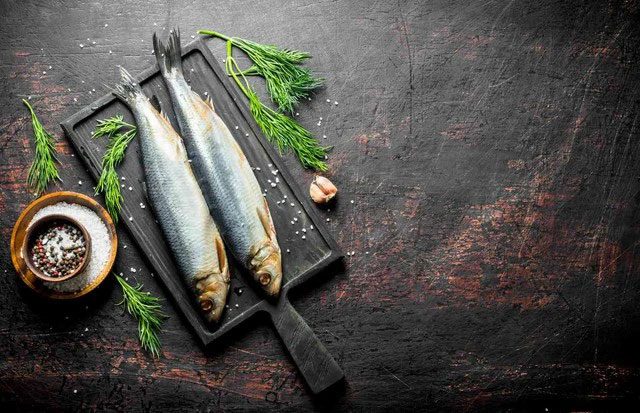
Herring is high in iron.
The omega-3 in herring provides numerous cardiovascular benefits, including significantly reducing the risk of arrhythmias or rapid heartbeat.
Herring also contains vitamin B12, which supports brain function and maintains healthy nerve cells. Folate (vitamin B9) in herring helps the body produce red blood cells.
Herring is high in iron, helping the body produce hemoglobin, a substance in red blood cells that carries oxygen throughout the body and prevents anemia.
2. Mackerel
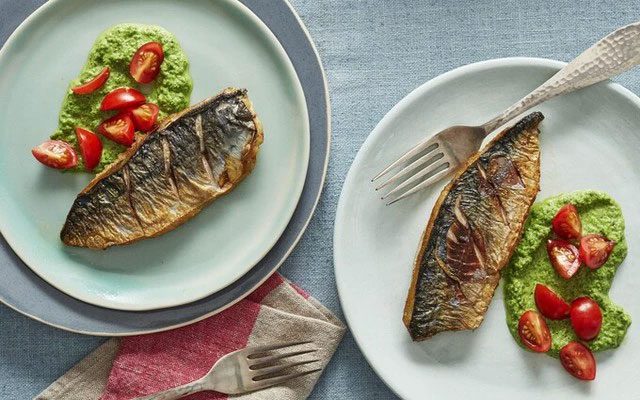
Mackerel is an excellent source of protein, vitamins B2, B3, B6, B12, and vitamin D.
Mackerel is considered one of the most nutritious fish. It is an excellent source of protein, vitamins B2, B3, B6, B12, and vitamin D. The flesh of mackerel also contains minerals like copper, selenium, and iodine. The amount of unsaturated fat in mackerel is also significantly higher, with about 77% of the fat in mackerel being healthy unsaturated fat.
Studies have shown that individuals who regularly consume mackerel tend to have lower blood pressure and less cholesterol in their blood. Research also indicates that the fats and proteins in mackerel help reduce levels of ghrelin—the hunger hormone that increases appetite—thus aiding in effective weight loss.
3. Sardines
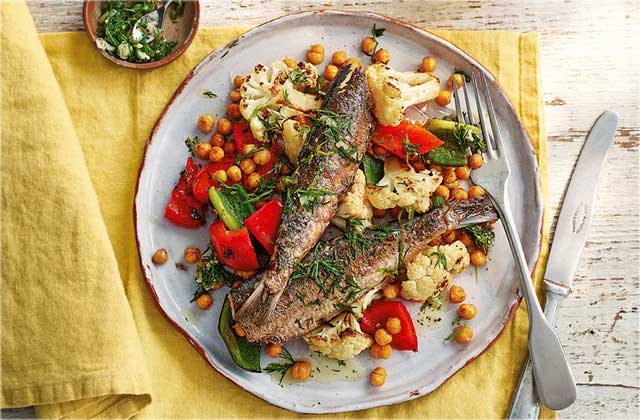
Sardines are rich in omega-3 fatty acids, vitamin D, vitamin B12…
Sardines are rich in omega-3 fatty acids, vitamin D, vitamin B12, and essential minerals. A study by Harvard University indicates that consuming 1-2 servings of sardines per week can provide adequate omega-3 fatty acids for the body, helping to reduce cardiovascular disease risk by over one-third.
Additionally, sardines are also an excellent source of calcium, providing about one-third of the calcium needed by the body. Vitamin D allows the body to absorb calcium, which is beneficial for bones.
4. Anchovies
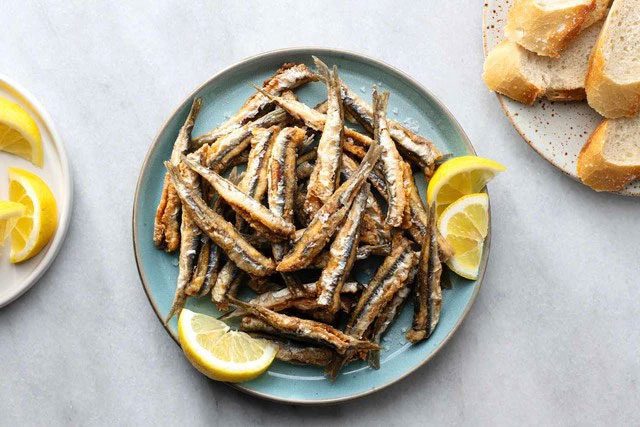
The omega-3 in anchovies helps protect vision and prevent dementia…
Anchovies are rich in vitamins and minerals, offering many health benefits, such as omega-3 fatty acids and selenium. The omega-3 in anchovies helps protect vision, prevent dementia, and support cardiovascular health by slowing plaque buildup in arteries and reducing blood pressure, thus lowering the risk of stroke. Moreover, selenium in anchovies helps prevent thyroid problems.
Benefits of Bivalve Seafood
1. Clams
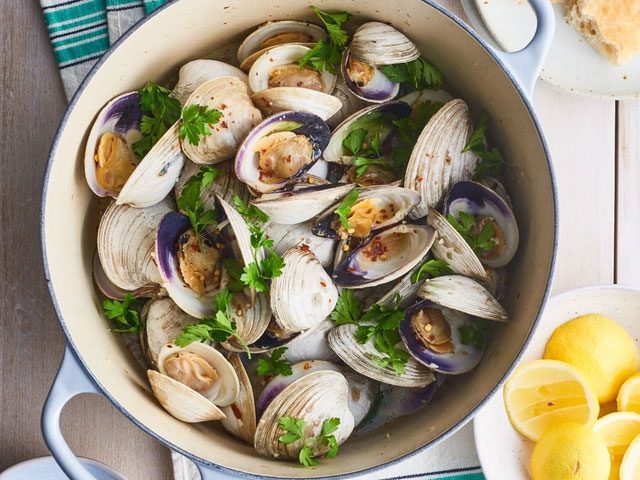
Eating clams benefits brain and cardiovascular health.
Clams are high in omega-3, vitamin B12, and protein, providing benefits for brain and cardiovascular health. According to the National Institutes of Health (NIH), vitamin B12 is crucial for maintaining healthy nerve and blood cells, as well as preventing anemia. Clams are also high in protein, with a 190-gram serving providing 48.5 grams of protein.
2. Oysters
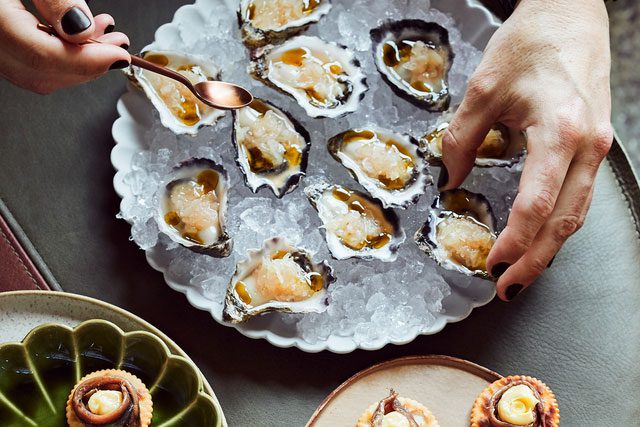
Oysters are rich in vitamin D, copper, zinc, and manganese.
Oysters are low in calories and high in micronutrients, making them a healthy food choice for many. Their impressive vitamin B12 content makes them a natural option for keeping your brain healthy.
Additionally, oysters are also rich in vitamin D, copper, zinc, and manganese. These micronutrients, combined with calcium, are key to slowing or even preventing osteoporosis. Oysters also provide reproductive health benefits for men due to their abundant selenium content.
3. Mussels
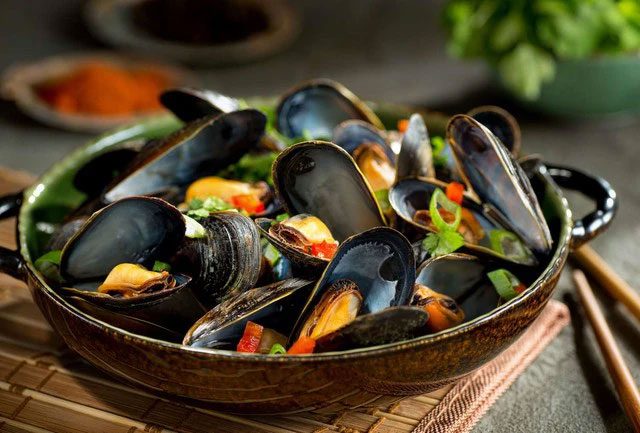
Mussels are an excellent source of protein.
Mussels are an excellent source of protein, containing many essential amino acids. Protein plays many roles in your overall health, including building muscle, boosting immunity, strengthening bones, and aiding in wound healing.
The iron content in mussels also helps prevent anemia, a condition that can cause fatigue and weakness.
4. Scallops
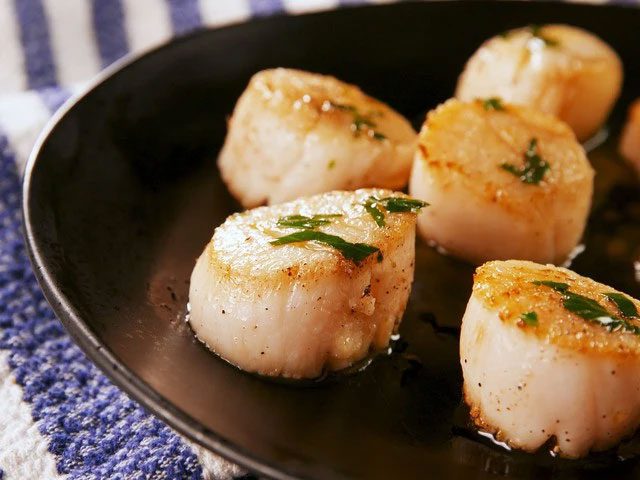
Scallops are made up of 80% protein and are rich in antioxidants…
Scallops are considered one of the healthiest seafood options. They consist of 80% protein and are rich in antioxidants, vitamins, and minerals. These nutrients protect the body against cellular damage that can lead to chronic disease. In traditional medicine, scallops have been used to treat ailments such as diabetes and indigestion. Modern research also indicates that the protein in scallops may help prevent certain types of cancer.
The high magnesium content in scallops may also contribute to cardiovascular health by relaxing blood vessels, potentially lowering blood pressure. One study found that people with low magnesium levels had a 54% higher risk of dying from heart disease. Research shows that the magnesium in scallops can help reduce cramps, repair tissues, and increase muscle strength.
Expert Golden notes: “The aforementioned seafood is healthy, but when consuming it, everyone should choose products with clear origins and prepare them correctly to prevent the risk of food poisoning.”


















































